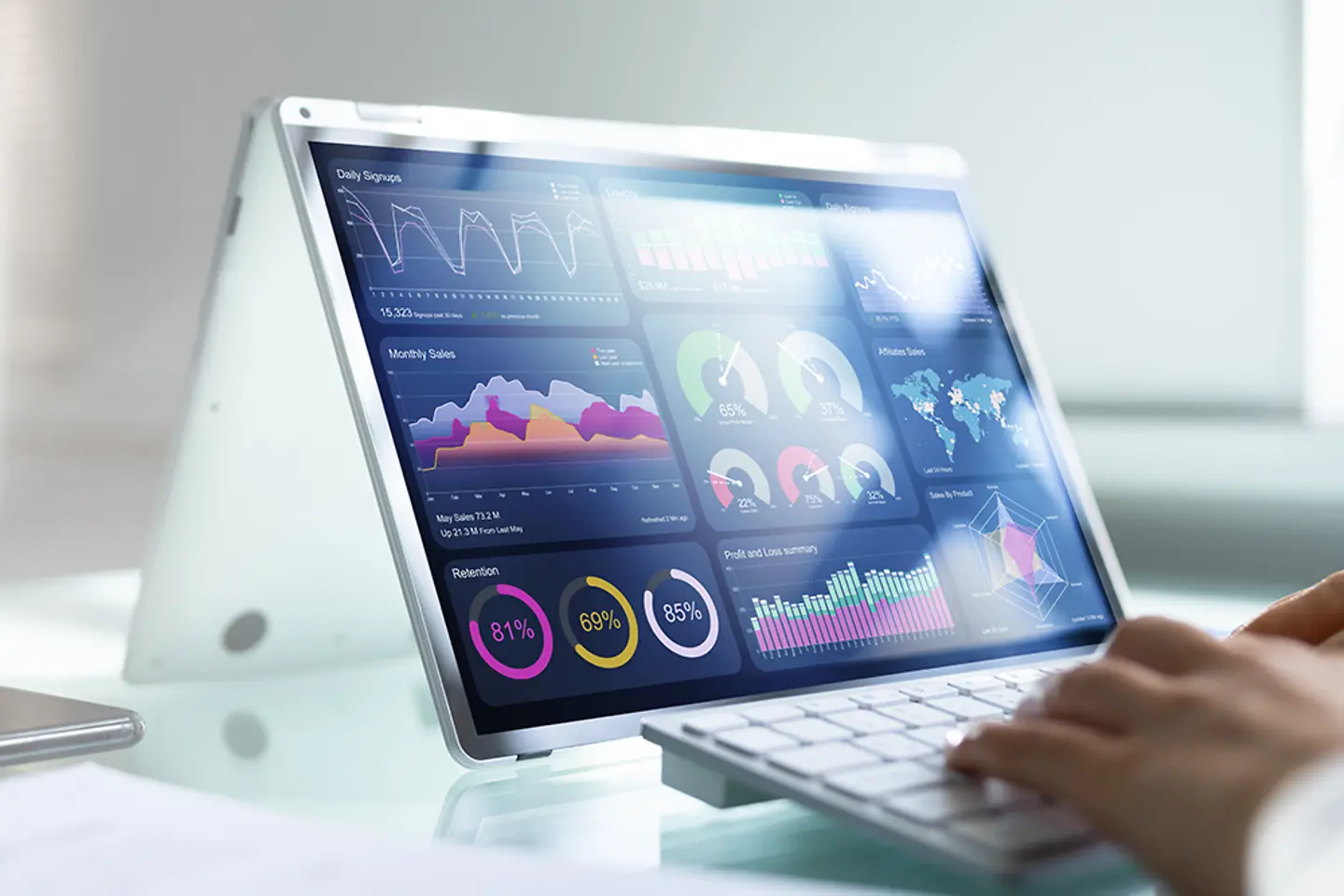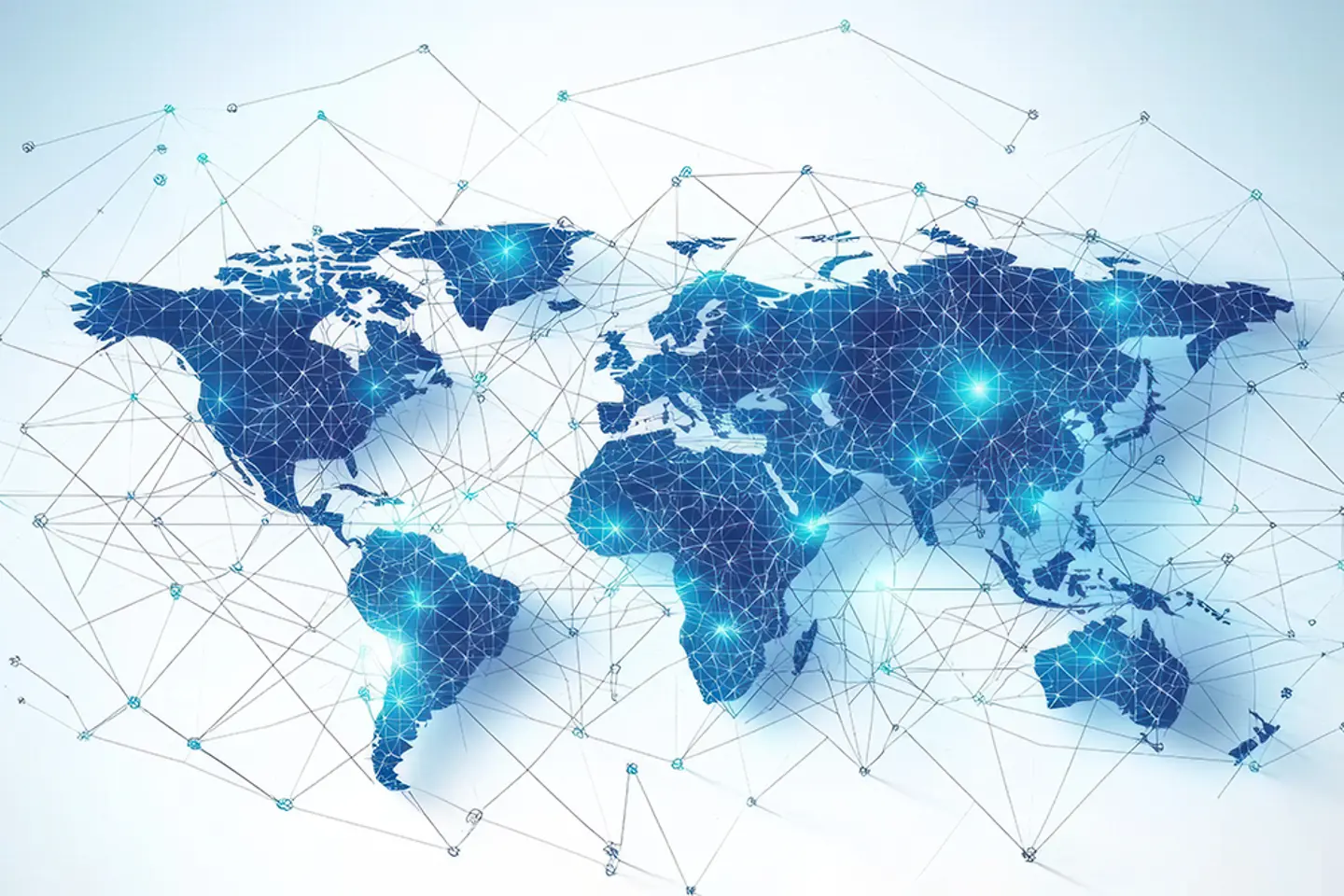
Copenhagen, the capital city of Denmark holds more than a thousand-year long history. With its close location to the sea, the city has for centuries been a hub for trade and goods. In a historical warehouse dated from the time, when ships were docking in Copenhagen, and were the means for connectivity between destinations, Klaus Koefoed Eriksen, Managing Director of T-Systems Northern Europe, sits in modern office locations reflecting on what to come in the New Year.
Klaus Koefoed Eriksen is not in doubt about what will be most significant in 2025: “Where we previously have seen strong digitalization of financial key figures and customer insights, we will see a much closer integration between operational technology (OT) and IT moving forward. I believe that in 2025, we will see many more of the traditional factories become digital. For example, using data to predict breakdowns or create digital twins to optimize production lines and logistics through virtual simulations.”
You can display all external content on the website at this point.
I agree that personal data may be transmitted to third-party platforms. Read more about this in our privacy policy.
An essential aspect is the ability to work seamlessly within a single platform. In the case of BMW, over 40 IT systems have been integrated into NVIDIA Omniverse. This powerful platform, developed by NVIDIA, allows designers, engineers, and architects to collaborate to create and simulate photorealistic 3D environments in real time.
Klaus expects that companies will increasingly use sensors and AI, as well as utilize the data already collected by their production apparatus to develop digital twins that can streamline and enhance their production.
For example, T-Systems has helped BMW create a complete digital copy of their car factory, allowing them to simulate various machines and process flows to find the most optimal setup in their factory. A digital setup that BMW expects will increase efficiency by up to 30%.
PwC expects the market for digital twins and metaverses to reach a global turnover of 860 billion euros in just four years – especially because more small and medium-sized enterprises will begin to use the technology.
82% of the surveyed CEOs in PwC's analysis expect to have concrete plans for Metaverse/digital twins within the next three years.

Another trend that Klaus Koefoed Eriksen sees is that companies' perception of data is changing:
"We will see more companies begin to view data as a living organism that constantly changes. The era of traditional quarterly key figures presented in an Excel sheet for management is ending, and we will see many more companies analyzing and reacting to live data out in the individual business units."
However, the right data quality is a prerequisite for using live data collected 24/7 from both business and production parts.
Klaus Koefoed Eriksen recommends starting small, for example, by collecting data on a single production unit and then recreating it virtually to run simulations. The solution should only be scaled when the data quality is satisfactory.

Geopolitical instability, the trade war between China, the USA, and potentially soon the EU, along with experiences from COVID-19, have created uncertainty for many companies regarding how to manage their data.
“We can feel that more organizations are actively considering what they want to store with hyperscalers, where their data is located, and who should have access to it. And that is healthy. But it also means we are beginning to see a shift in cloud strategy for many,” says Klaus Koefoed Eriksen.
First, he believes a more volatile world means more companies are seeking safe harbors, which, in terms of the cloud, means more will want their data in Europe. At the same time, he sees a trend towards multi- and hybrid-cloud solutions, where companies store data in multiple cloud locations and where public and private cloud data must work together.
We will see a much more complex cloud setup than before, which demands the company's data structure and the providers' setup more. I also believe we will see growth in using public data spaces.
Klaus Koefoed Eriksen, Managing Director of T-Systems Northern Europe
Data spaces are ecosystems that allow data sharing across companies. The data owner decides which data is shared, with whom, and under what conditions. This, for example, allows for much greater transparency in the company's value chains.
You can display all external content on the website at this point.
I agree that personal data may be transmitted to third-party platforms. Read more about this in our privacy policy.
For example, he mentions Catena-X, where an entire ecosystem around the automotive industry has come together to share data, making them individually and collectively more competitive. The Danish Digitalization Agency's Data Space Forum and the European Gaia X and Copernicus projects are other initiatives promoting data sharing between companies and the public sector.
“A devout wish is that in Denmark we turn our attention to markets that already have concrete experiences with Data Spaces so that we do not waste time and money reinventing the wheel but instead utilize the experiences already made and the technology that already exists,” says Klaus Koefoed Eriksen.
Overall, Klaus Koefoed Eriksen looks forward to an exciting 2025, where he believes we will see several exciting trends unfold.
“We can feel how changeable the world we live in is. And from my perspective, it is only an extra plus to work in the world's coolest industry, where things never stand still. We are certainly ready to meet the new world,” he concludes.
This article is based on an original article written by the Danish IT Association.